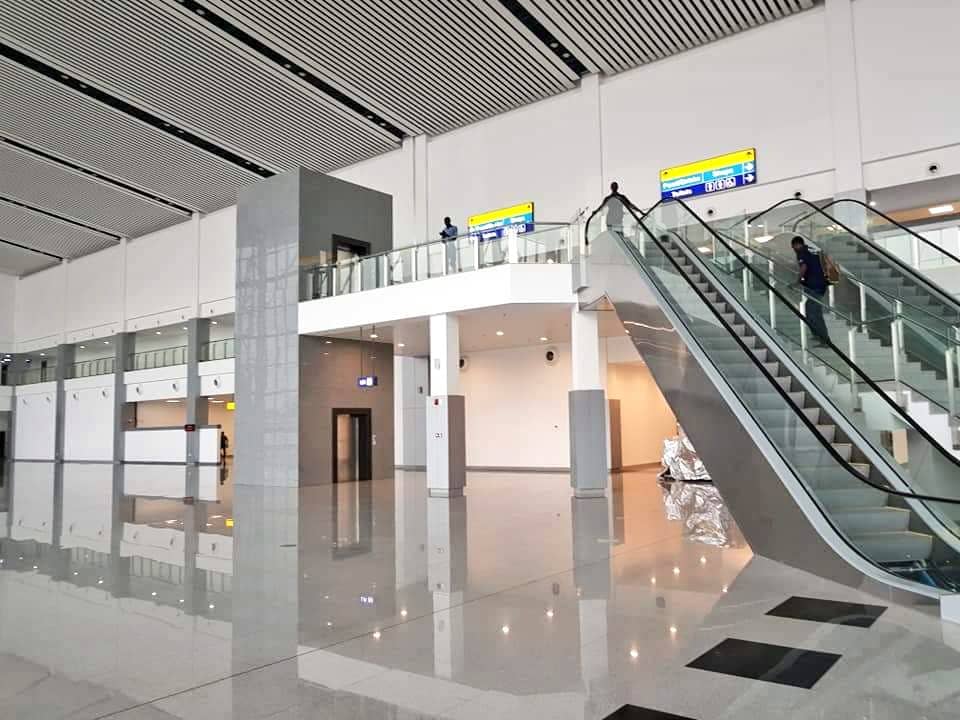Business
Airlines Increase Flight Tickets Cost By 100% At PH Airport

Users and those that do business at the Port Harcourt International Airport, Omagwa, have decried the sudden increase in the cost of flight ticket.
The Tide’s investigations revealed that the four major airlines operating at the airport: Arik, Dana, Airpeace and the Aero Contractors, have increased the cost of their flight tickets by 100 percent, while others such as the Max Air, Medview and Azman Air have stopped operations at the airport.
Some of the airport users who spoke to our correspondent on the recent increase, complained that the increase was more than 100 percent in some cases, and had affected their business.
A travel agent (ticketer), Tomkiiri Abel, said the increase had caused reduction in the passenger traffic, and had affected their income negatively.
“ You can now observe the rate at which flight ticket has gone so high. Economy class that used to be between N30,000 and N35,000 at peak time now goes for between N60,000 and N65,000 from Port Harcourt to Lagos or Abuja in all the airlines”, he stated.
In his own reactions, a business operator at the airport, John Tasie, said the situation did not only discourage many passengers due to the distressed economic situation, but had also created a dull atmosphere for business generally.
He asked, “How many people would want to fly anyhow again, except you are a political office holder, or top company executive that can afford such huge amount for flight ticket?”
Nevertheless, a staff of one of the airlines who chose to be anonymous told The Tide that the airlines right now were passing through serious challenges as a result of the long period of shutdown occasioned by coronavirus pandemic.
He said many airlines were finding it difficult to pay full staff salaries, adding that if there is no bailout to support their operations, some of the airlines would close shops.
Meanwhile, a senior officer at the Corporate Affairs office of the airport told The Tide on the condition of anonymity that many of the airlines may soon merge as they could no longer cope with the operations.
She said that talks were ongoing among the airlines towards the merger, explaining that the battle for survival caused the increase in cost of flight tickets.
By: Corlins Walter
Transport
Automated Points Concession : FAAN Workers Gave 72hrs To Revise Decisions In PH

Transport
FAAN Announces Pick-Up Points for Go-Cashless Cards

Business
Fidelity Bank To Empower Women With Sustainable Entrepreneurship Skills, HAP2.0
-
Politics3 days ago
2027: NIGERIANS FAULT INEC ON DIGITAL MEMBERSHIP REGISTER DIRECTIVE
-

 Environment3 days ago
Environment3 days agoLAWMA Director Says Sweeping Reforms Have Improved Waste Collection
-
Politics3 days ago
LP Crisis: Ex-NWC Member Dumps Dumps Abure Faction
-

 Politics3 days ago
Politics3 days agoUmahi Dismisses Allegations On Social Media, Insists On Projects Delivery
-

 Sports3 days ago
Sports3 days agoAbia Not Sure To Secure continental Ticket
-
Sports3 days ago
La Liga: Yamal Records First Career Hat-trick
-
Politics3 days ago
NATASHA ELECTRIC VEHICLES INITIATIVE IN KOGI CENTRAL
-

 Sports3 days ago
Sports3 days agoPSG Extend Lead In Ligue 1

